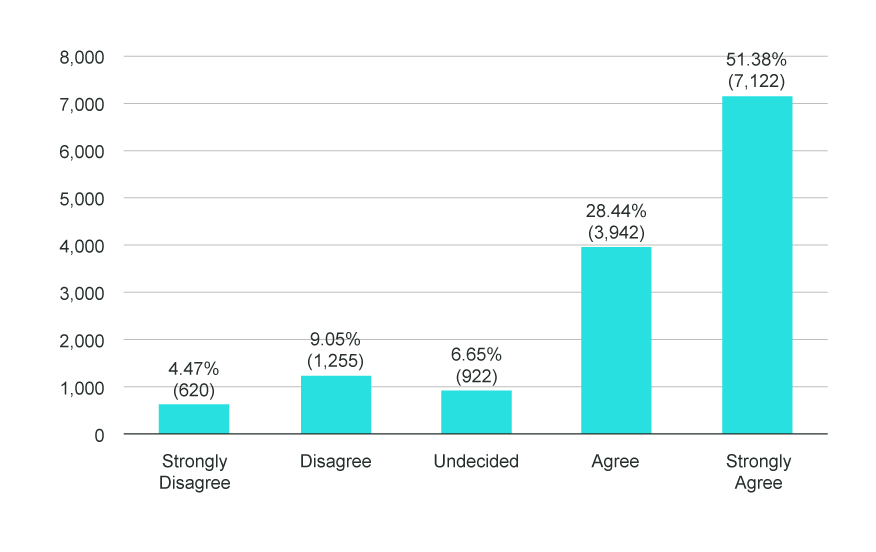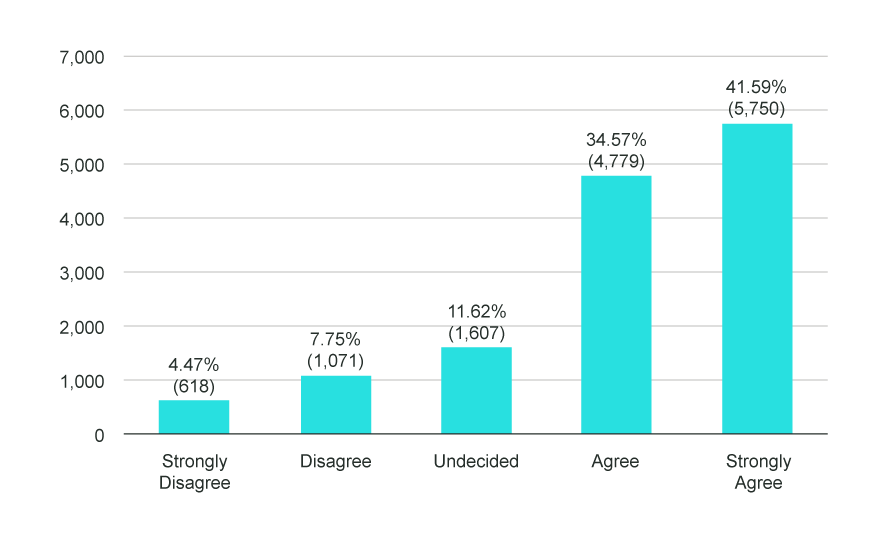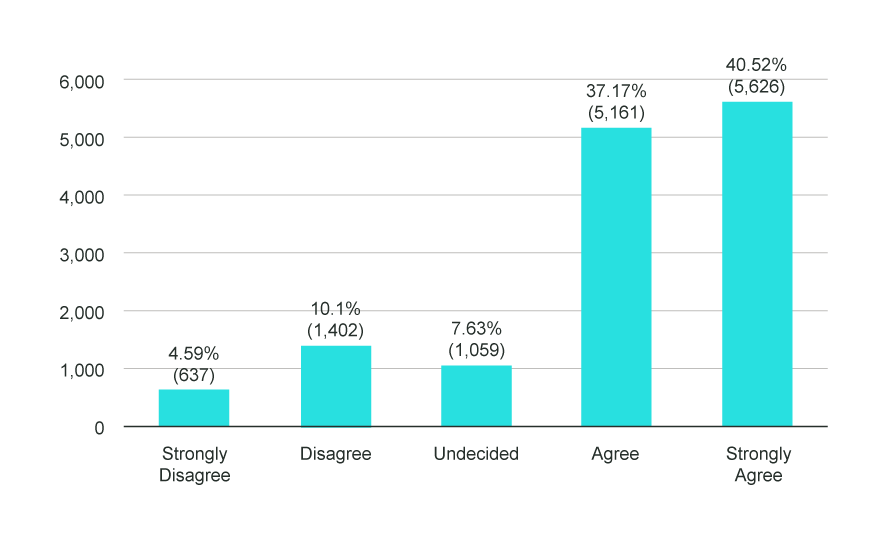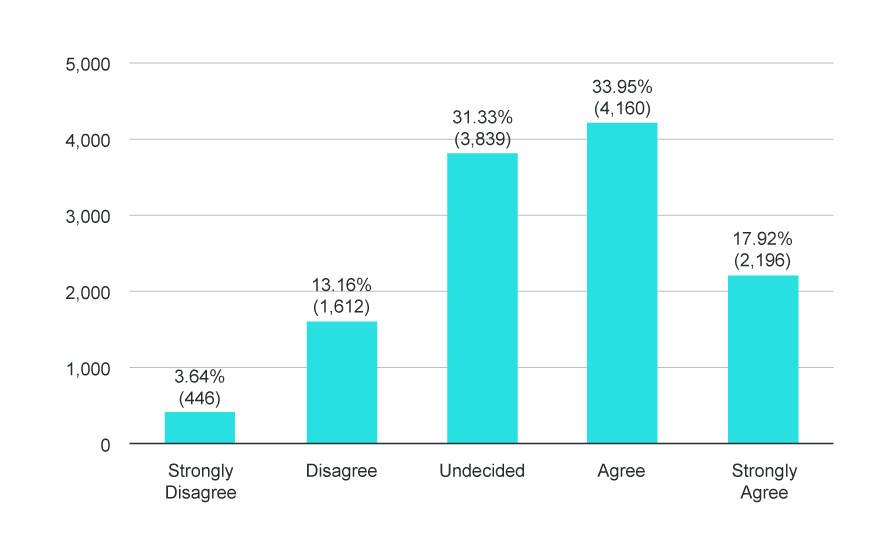Project Wichita Survey
Nearly 14,000 voices shared their hopes for the future of the Wichita region through the Project Wichita survey. Participants totaling 13,907 represented a wide variety of the community and their input will be used to shape a 10-year regional vision and action plan. In comparison to peer cities, this participation number is incredible.
The survey was the second and final part of the “listen” phase of the Project Wichita process, following the first part, focus groups, where more than 3,800 people identified the broad topics the region wants addressed. Everyone in the region was encouraged to participate in both focus groups and the survey.
Since the completion of the survey, the Wichita State University Public Policy and Management Center has been analyzing the community responses from two initial sections of the survey - the Vision and Regional Perspectives categories.
With over two million data points to review, WSU's Public Policy and Management Center team presented preliminary findings of the Vision and Regional Perspectives categories to the Vision Team. Below are the preliminary findings for both the Vision and Regional Perspectives categories.
PRELIMINARY VISION FINDINGS
8 out of 10 community respondents think that our region should be a place that all children have the chance to succeed
STRONGLY AGREE (51.38%)
AGREE (28.44%)
Over 80% of community respondents think that our region should be a place that provides opportunities for people willing to help themselves
STRONGLY AGREE (49.73%)
AGREE (35.13%)
Nearly 8 out of 10 community respondents think that our region should be a place that ensures career opportunities and advancement for all ages
STRONGLY AGREE (47.12%)
AGREE (30.09%)
Over 75% of community respondents think that our region should be a place that values diversity and inclusion
STRONGLY AGREE (41.59%)
AGREE (34.57%)
More than three-fourths of community respondents think that our region should be a place that is a destination place people want to live
STRONGLY AGREE (40.52%)
AGREE (37.17%)
Nearly three-fourths of community respondents think that our region should be a place that supports cooperation and collaborations among regional sectors
STRONGLY AGREE (35.83%)
AGREE (37.19%)
Preliminary Regional Perspectives Findings
4 out of 5 community respondents think that the Wichita region has to be willing to change to keep and attract the next generation
STRONGLY AGREE (51.98%)
AGREE (34.09%)
Two-thirds of community respondents are optimistic about the future of the Wichita region
STRONGLY AGREE (21.15%)
AGREE (45.9%)
Half of the community respondents think that an increase in population would make the Wichita region thrive
STRONGLY AGREE (17.92%)
AGREE (33.95%)
Additional Survey Findings
Wichita State University's Public Policy and Management Center team continued their deep dive into over two million points of data, reviewing the rest of the survey findings. These findings focused on the essential investments of the eight broad topics within the survey. These eight broad topics were identified during the 239+ focus groups from over 3,800 voices. These topics covered in the survey include: Downtown Area, Riverfront, Strong Neighborhoods and Communities, Cultural Arts and Attractions, Economic Opportunity, Transportation, Education and Community Wellness.
New findings
Participants were asked to rank what future investments of resources (time, human resources or money) were the most important to outcomes in these different areas. Out of the over 40 choices, some of the highest ranked topics included Talent Development and Retention, Education, Transportation, Community Issues, and Economic Growth.
Demographic differences
In addition, WSU's Public Policy and Management Center team analyzed survey responses for differences among demographic groups such as gender, age, race, education and income levels to further understand the survey responses.
Some examples of demographic findings included:
Women and minority communities ranked ideas related to education higher
Minority communities and younger age groups ranked issues related to river and downtown development higher
Economic improvement issues ranked high in all demographic categories.
Next Steps
The Project Wichita Vision Team, made up of over 90 community leaders from large and small businesses, non-profit organizations and community and civic groups, will review all of the listening input from the focus groups and the survey findings including demographic areas. Working with local content area experts, they will also review existing plans and draft action plans for a 10-year vision to present to the community by the end of 2018.












